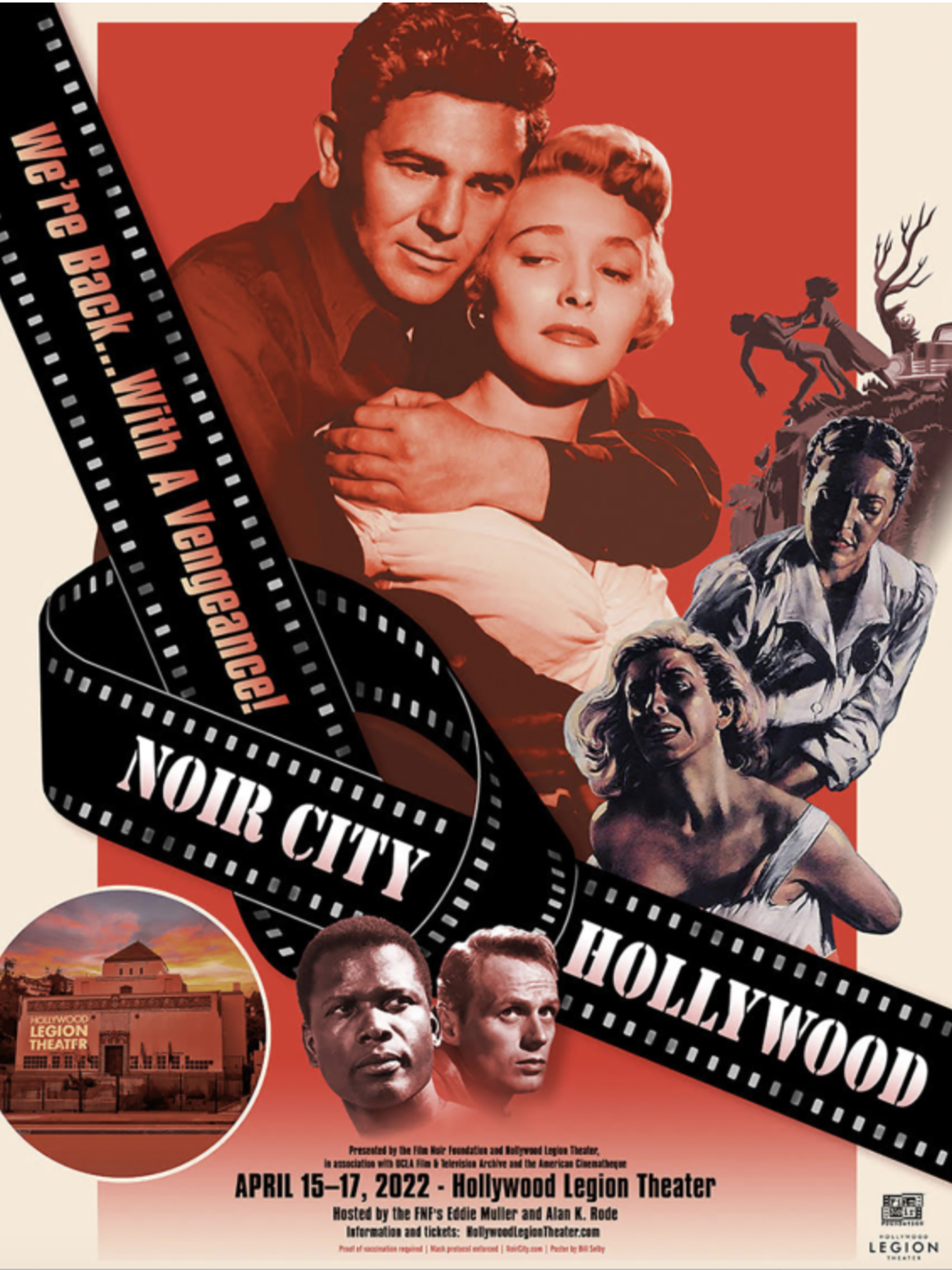
- Film
Noir City Festival and Tribute to Yoram Kahana
The beautiful Hollywood Legion Theater was buzzing at the opening of Noir City on April 15, a film festival showing restored noir films. The atmosphere was vibrant with a willing and dedicated audience, a few wearing vintage outfits with gusto, some masked as a Covid-19 precaution, others not. The three-day event is back after a pandemic hiatus in 2021.
The festival is the flagship event of the Film Noir Foundation, a nonprofit organization dedicated to preserving and restoring the cultural, historical, and artistic legacy of film noir, which it views as “an international cinematic movement”. The Hollywood Foreign Press Association is a significant contributor to the work of the Foundation and has provided funding for the restoration of noir works.
The latest film to be restored by FNF and UCLA Film & Television Archive with HFPA funding is The Argyle Secrets (1948), written and directed by Cyril Enfield, a blacklisted Hollywood filmmaker who focused on socially pertinent themes. It tells the story of a journalist (William Gargan) who sets out to investigate the so-called Argyle Album, which contains damning information about prominent politicians and businessmen with ties to the Nazi movement in America. When introducing the feature, FNF’s founder and president Eddie Muller said that what Endfield fit in 64 minutes could very well become an “8-episode HBO series” today.
Muller and Board Member Alan K. Rode presented The Argyle Secrets, offering important context and insight, along with a brief tribute to Yoram Kahana, HFPA’s longtime Member who championed film restoration for many years. Kahana passed away on June 15, 2021. Muller described how he first met Kahana, the latter approaching him enthusiastically about the foundation’s work and potential. The Israeli journalist and photographer became a fierce advocate for Film Noir and had a pivotal role in the dispensation of annual HFPA grants for film preservation.
Both Muller and Rode spoke with admiration and respect for Kahana’s long career spanning several decades from Israel to the USA, his contributions to the Hollywood and international artistic communities, and his ever-restless and curious demeanor. Both men remembered him often wearing an explorer’s khaki vest with pockets. “He always looked like he was on assignment,” Rode said fondly. “He was covering the ‘war of Los Angeles’,” added Muller, eliciting appreciative laughs from the audience. A slide reel, projected onto the screen of the Legion Theater, featured photographs and the title Yoram Kahana, Champion of Film Restoration.
Muller walked off the stage calling to the audience to enjoy The Argyle Secrets. As he went down the steps, he yelled “Thank you, Yoram Kahana!”
In its hometown of San Francisco, where Muller is from, Noir City has acquired cult status and is highly anticipated. After many years of being hosted by the Castro Theatre, the festival relocated to Oakland’s historic Grand Lake Theatre for four days of screenings in late March. The program was curated to draw a parallel between 1950s America and the sociopolitical situations of today, touching upon hot subjects of political corruption, the media’s influence on public opinion, racism, Nazism, and anti-Semitism.
The abbreviated Hollywood program features 8 noir films, including Cyril Endfield’s Try and Get Me! (1951), based on a true 1933 crime story starring Lloyd Bridges and Frank Lovejoy that decries all forms of violence; The Argyle Secrets (1948) and The Underworld Story (1950), by the same director; Michael Curtiz’s The Breaking Point (1950), led by John Garfield and based on Ernest Hemmingway’s To Have and Have Not; the Library of Congress 35 mm print of William Dieterle’s The Accused (1949), a noir-skewed feminist message starring Golden Globe Winner Loretta Young and based on a novel and screenplay written by female authors June Truesdell and Ketti Frings, respectively; a police corruption tale, The Prowler (1951). The film starred Van Heflin and Evelyn Keyes, among others. The screenplay was written by Golden Globe nominee Dalton Trumbo and Joseph Losey, both blacklisted at the time.